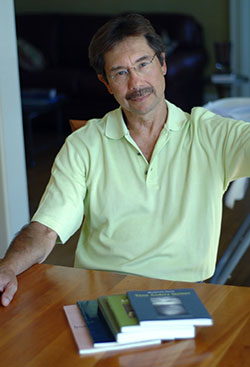
PHOTO of Stuart Dybek
courtesy of the John D. & Catherine T. MacArthur Foundation
Agnieszka Tworek: Early on you wanted to be a doctor, a profession that many parents, especially immigrant families, want their children to have. Yet, you abandoned pre-med and became a teacher, a dedicated teacher. And then, you became a writer, which, most of the time, makes for a precarious living. What attracted you to being a writer?
Stuart Dybek: There’s a moment I have written about in what I hope is a comic essay called “Ralston,” when, while writing a geography assignment in 4th grade on Africa, I invented metaphor. At least, I came up with “the tree-scraped skies,” a phrase that combined the tallest things I’d ever seen–skyscrapers–with trees, which I was sure Africa had in abundance. A bolt literally shot through me. I’ve never forgotten that moment, and all through grade school and high school, writing seemed special to me. I didn’t articulate it to myself as “an art,” but it was not merely a school subject. I loved writing stories and poems and was fortunate to receive praise from my teachers, who were nuns. The art I most loved by high school was music and I wanted to be a jazz musician. When I realized I lacked the talent to play what I could hear so clearly in my mind, I turned to writing. It was easier and therefore less frustrating for me to capture stories and images in words on the page than it was to play them on my sax. I’ve always tried to write as if words were a kind of music.
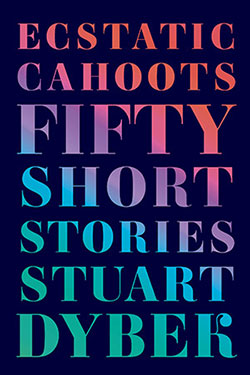 AT: Your maternal grandmother, whom you affectionately call Busha, appears in your poem “Bath,” and comes back in the vignette “Belly Button,” included in your recent collection Ecstatic Cahoots, that stages a childhood bath in Chicago, in which paradoxically “Kraków was only blocks away.” The shadows of the Old World are alive in the neighborhood, but above all in the figure of your doting grandmother and “her toweling embrace.” She didn’t know much English. How did you communicate with her? Do you speak or understand Polish? What did she teach you?
AT: Your maternal grandmother, whom you affectionately call Busha, appears in your poem “Bath,” and comes back in the vignette “Belly Button,” included in your recent collection Ecstatic Cahoots, that stages a childhood bath in Chicago, in which paradoxically “Kraków was only blocks away.” The shadows of the Old World are alive in the neighborhood, but above all in the figure of your doting grandmother and “her toweling embrace.” She didn’t know much English. How did you communicate with her? Do you speak or understand Polish? What did she teach you?
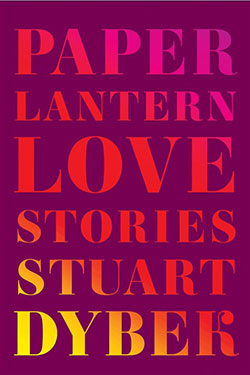 SD: I come from a family in which my parents spoke Polish at home, at least, as one of my poems has it “in matters of sex or money.” My beloved grandmother spoke very little English, and I am told that as a child I spoke and could understand rudimentary Polish. But there was no effort to teach the language to me. The effort was all about assimilation. To become American as quickly and thoroughly as possible. I thought years later when I went to Poland it would come back to me but it did not. I am not by nature a regretter but a real regret that
SD: I come from a family in which my parents spoke Polish at home, at least, as one of my poems has it “in matters of sex or money.” My beloved grandmother spoke very little English, and I am told that as a child I spoke and could understand rudimentary Polish. But there was no effort to teach the language to me. The effort was all about assimilation. To become American as quickly and thoroughly as possible. I thought years later when I went to Poland it would come back to me but it did not. I am not by nature a regretter but a real regret that
I do have is that I did not learn to speak Polish in the household. Both my grandfathers, my dzia-dzias died early from hard living. I’ve written about it, so won’t repeat that here. On my mother’s side, I was the oldest male grandchild and my grandfather, John Sala, told me in whiskey smelling broken English brutal tales I loved about heroes whose names I remember but can only spell–forgive me–in a phonetic broken Polish that I won’t even try to recreate. But the stories and sayings undoubtedly marked my consciousness.
AT: In “Chopin in Winter” you paint a memorable eccentric grandfather Dzia-Dzia who relives his past thanks to piano music played by a young neighbor in the apartment above. Did you get a sense that your grandparents felt homesick for Poland and if yes, how did they cope with it?
SD: The sense I got from my grandparents was not homesickness. They were Poland. They did not assimilate. The women learned how to survive. The men worked, drank, fought until they were defeated.
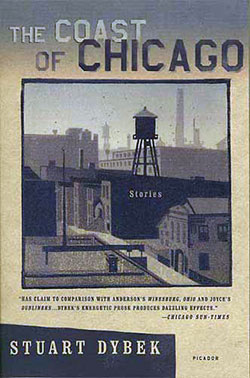 AT: The world you create or recreate on the pages of your stories seems grounded in the Chicago landscape but also steeped in magic, in the language of fables, that we see even in your recent stories such as “Oceanic,” “Tosca,” or “I Never Told This to Anyone.” Did you hear fairytales from your parents or grandparents as a child? When did the interest in the magical appear in your life?
AT: The world you create or recreate on the pages of your stories seems grounded in the Chicago landscape but also steeped in magic, in the language of fables, that we see even in your recent stories such as “Oceanic,” “Tosca,” or “I Never Told This to Anyone.” Did you hear fairytales from your parents or grandparents as a child? When did the interest in the magical appear in your life?
SD: I grew up in a port of entry neighborhood and the divide between its American reality and immigrant soul was apparent in everyday life. There was a babble of languages and for that matter customs just below the surface of English and American culture, a discordance and a colorful sense that fascinated and alarmed me: rag peddlers, knife sharpeners, hermits living beside the sanitary canal and along railroad tracks…They seemed dressed in their ragged ill fitting clothes to have escaped from fairytales. That was not at the time a literary response. Only later, when I tried to recreate the outliers that were such a powerful aspect of that working class neighborhood did I graft a more magical overlay onto the narrative. To put it in an oversimplified but not inaccurate way, I grew up among a population of what Jung called The Other.
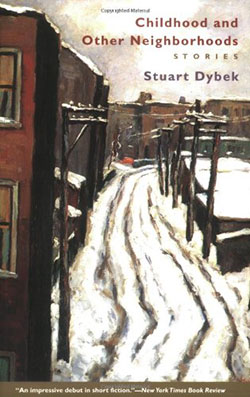 AT: You’ve obviously been influenced by American literature, Calvino, Kafka, and Russian writers. But when I read your work I was also reminded of the Drohobycz landscapes in Bruno Schulz’s fiction, which like yours is imbued with the lyrical and the fantastical. His writing, again like yours, is influenced by his childhood. Schulz confessed to Witkacy: “I do not know how it is that in childhood we hit upon certain images that are of crucial significance for us. They perform the role of those filaments, dipped in solution, around which the meaning of the world becomes crystalised for us.” Do you feel affinity with Bruno Schulz’s fiction and are there any Polish writers whose work you admire?
AT: You’ve obviously been influenced by American literature, Calvino, Kafka, and Russian writers. But when I read your work I was also reminded of the Drohobycz landscapes in Bruno Schulz’s fiction, which like yours is imbued with the lyrical and the fantastical. His writing, again like yours, is influenced by his childhood. Schulz confessed to Witkacy: “I do not know how it is that in childhood we hit upon certain images that are of crucial significance for us. They perform the role of those filaments, dipped in solution, around which the meaning of the world becomes crystalised for us.” Do you feel affinity with Bruno Schulz’s fiction and are there any Polish writers whose work you admire?
SD: Bruno Schulz was a writer I naturally gravitated to. There is a powerful expressionistic quality to his work and my own taste runs more to the surrealism of a writer like Kafka, but of course it isn’t an either or. I find the narratives in Kafka more compelling as well. I’m limited obviously by having to read in translation. Years ago I was fortunate to bring Miłosz, whom I revere, to the school I was teaching at for three days of programs. I love his work and I think of Miłosz, Szymborska, and Herbert as three of the greatest writers of the 20th Century. How Herbert was not awarded a Nobel Prize I do not know. I love the work of Różewicz and Zagajewski, of Anna Świr as her name appears in English, and of Cyprian Norwid. I wish there was more of Mrożek in translation, I think The Cyberiad by Stanisław Lem is brilliant, I very much like Borowski. I certainly admire if not love Gombrowicz. One of my favorite of all novels, which I think is terribly underrated is Szczypiorski’s The Beautiful Mrs. Seidenman.
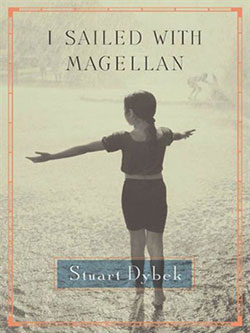 AT: Have you been to Poland and if yes, could you describe this experience?
AT: Have you been to Poland and if yes, could you describe this experience?
SD: I have been to Poland. I had what has come to be called in the US, a “Madeleine Albright experience.” The chief rabbi of the temple reconstruction project in the Kazimierz who looked very much like my father and who had the same last name, Dybek that I do, told me that my father’s family from Jeleśnia, was most likely Jewish. Because my grandfather Dybek, died in the State Mental Hospital there was very little family history passed on. Again, I have written about this, so I won’t expand here.
AT: I know that music plays such an important role in your life. Do you continue to play saxophone? Whom do you listen to when you write?
SD: I don’t play much sax anymore, though I still have my horns. I listen to all kinds of music. The kind that I write to is usually meditative, moody, bluesy, sometimes minimalist in character. There’s a label I love, ECM, that probably half of the music I play while writing was recorded on–Arvo Pärt, for instance. I’m a huge fan of the French impressionists.
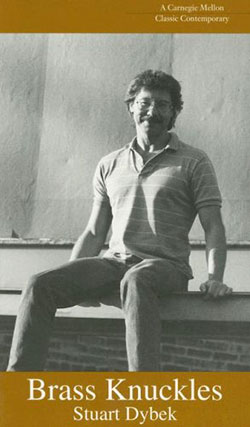 AT: If you came back to teach high school and had Stuart Dybek as a student what advice would you give him, advice you wish you heard as a teenager?
AT: If you came back to teach high school and had Stuart Dybek as a student what advice would you give him, advice you wish you heard as a teenager?
SD: The question you ask about advice in high school intersects with the book I am working on now, a bildungsroman based on the Catholic boys high school I attended. It is a place that I learned to learn by defining myself against what I was being taught. That school actually was a good model for my later life as a teacher as all I had to do in the classroom was the opposite of what was done to me. And yet, even though when I got out of that place where we never wrote and reading was regarded suspiciously, I was placed in remedial English in college, I have to think that there was some value to realize at an early age that rebellion against authority was more than just attitude, and that if one wanted to be free he needed to learn to educate himself.
CR
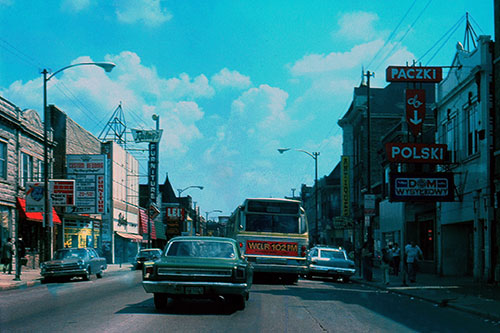
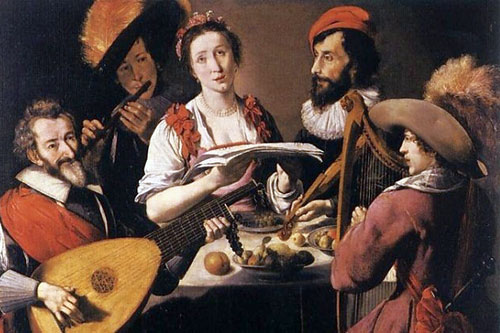
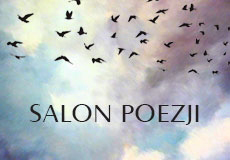
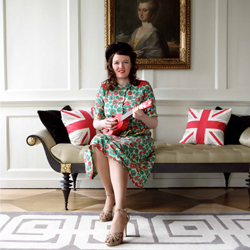
Pingback: Welcome to our 2014 Fall-Winter Issue!
Pingback: Fall-Winter Version of the Cosmopolitan Evaluate | Posts